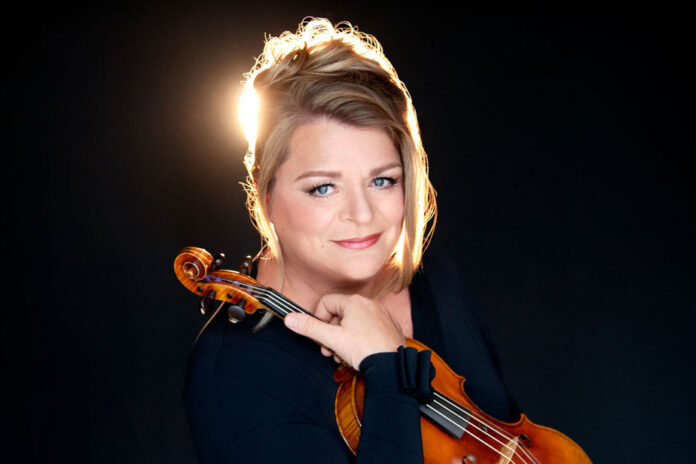Philip Glass: genius or charlatan? The debate has raged for a long time in the classical world. Let’s say that if the prolific American composer, still active at 86, has certainly made a significant contribution to the contemporary musical landscape with his operas and his large-scale scores (concertos, symphonies, etc.), several of his commissioned works, especially for the small and big screen, were able to fall into a certain ease. We think of these famous accompaniments on two notes (often a third) repeated until we drop, these tirelessly melancholic atmospheres and these stereotypical harmonic sequences, despite the occasional passage of pleasantly surprising chords.
Angèle Dubeau has already signed discographic portraits of Glass (2008), John Adams, Arvo Pärt, Max Richter, Ludovico Einaudi and – very recently – the young Alex Baranowski, a disc which earned her her 19th Félix last Sunday. The musician and arranger François Vallières this time looked at around fifteen extracts from scores composed by Glass between 1981 (Glassworks) and 2018 (Quintet for piano and strings no. 1). We hear extracts from symphonies (No. 3, one of the most interesting tracks on the disc) or sonatas (the one for violin and piano), but also pieces composed for Koyaanisqatsi or A Brief History of Time.
The arrangements for strings, with occasional piano presence, are not incongruous, Glass having used these instruments extensively throughout his career. Dubeau and her 12 colleagues allow Glass’ hypnotic landscapes plenty of time to unfold before our eyes, Carl Talbot’s detailed sound recording allowing each part to be clearly captured.
Please note that Angèle Dubeau and La Pietà will be at the Maison symphonique de la Place des Arts on Monday, November 27.















